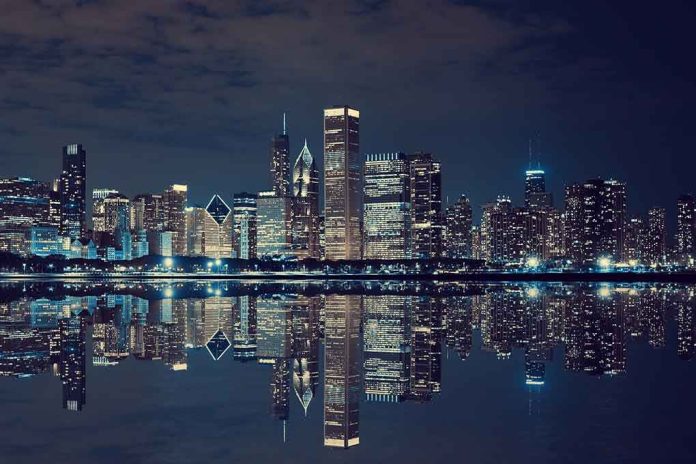
The Obama Presidential Center’s construction threatens to displace longtime Chicago residents, raising alarms over gentrification and identity loss.
Story Snapshot
- The Center’s construction in Jackson Park triggers fears of displacement.
- Residents argue the project erodes the neighborhood’s historic character.
- Community leaders demand stronger affordable housing protections.
- Obama Foundation claims the Center will bring cultural and economic benefits.
Concerns Over Displacement and Gentrification
The construction of the Obama Presidential Center in Chicago’s South Side has sparked controversy among residents and community leaders. They argue that the development accelerates gentrification and leads to the displacement of longtime residents. Rising property values and luxury developments threaten the historic character of the neighborhood, causing tension between the project’s promise of revitalization and the risk of losing community identity.
The Center, the first fully digitized presidential library, is privately funded by the Obama Foundation. It aims to create a cultural and economic hub, but many locals fear it will cater to outsiders rather than the existing community. Legal battles over land use and environmental impact delayed construction, highlighting the ongoing struggle between development interests and local preservation efforts.
Stakeholders and Their Roles
The primary stakeholders include the Obama Foundation, local residents, the city of Chicago, and the University of Chicago. The Foundation seeks to develop a world-class museum, while residents focus on preserving affordable housing and cultural identity. City officials and the University are interested in economic development and prestige. Developers are motivated by profit from rising property values, which complicates the power dynamics, leaving residents with limited influence but vocal in public forums.
The Obama Foundation and city officials hold significant decision-making power, but community advocacy groups continue to push for equitable development measures. The Center’s construction has reached major milestones, with ongoing efforts to incorporate sustainability and inclusive design. However, concerns about affordable housing guarantees remain unaddressed, prompting calls for binding community benefits agreements.
Balancing Development and Preservation
The Obama Presidential Center’s impact is multifaceted, with economic, social, and political implications. In the short term, construction activity and property values rise, increasing community tensions. Long-term, there’s potential for neighborhood transformation but also significant risks of displacement for low-income families and loss of historic character. The project sets a precedent for how major urban developments interact with historically marginalized communities.
Urban planners and housing advocates stress the need for robust affordable housing protections to prevent accelerated gentrification. While the Obama Foundation emphasizes sustainability initiatives, critics argue that social sustainability—ensuring community cohesion and cultural heritage—is equally critical. The outcome of this project will depend on ongoing negotiations between the Obama Foundation, city officials, and community advocates.
Sources:
WTTW News: Opening of Obama Presidential Center Delayed
Obama Foundation: January 2025 Construction Update
Obama Foundation: April 2025 Construction Update
Wikipedia: Barack Obama Presidential Center


